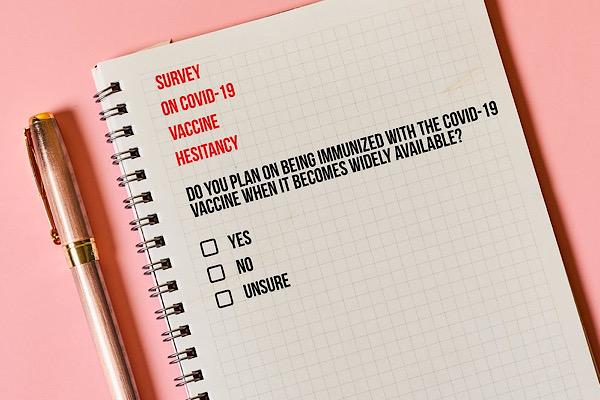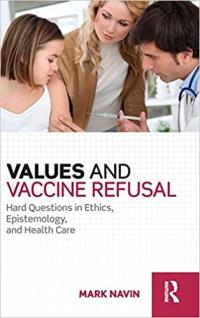
The Center for Ethics and Human Values is partnering with the College of Pharmacy for a panel discussion on vaccine hesitancy and engaging the unvaccinated.
The COVID-19 pandemic reignited a wide range of debates about the ethics of vaccination and the extent to which employers, governments, and universities can permissibly require individuals to get vaccinated. This panel focuses on engaging unvaccinated individuals through the use of nudges. While nudges can change people's incentives and lead them to make different decisions, they are nowhere near as coercive as vaccinate mandates. Nevertheless, this method of persuasion raises some moral concerns, which raises important questions about when and how they ought to be used.
The event will be held in room 165 of the Thompson Library. A livestream is also available for viewing the event online (please note, however, that questions will be taken only from the in-person audience during the Q&A portion of the event). Register here to receive a link to join the livestream; no registration required for in-person attendance.

Event Format
Guest speaker Mark Navin (Professor and Chair of Philosophy, Oakland University) will deliver a brief presentation on "Pro-vaccination nudges and conflicts between the ethics of the clinic and of public health".
Professor Navin's presentation will be followed by remarks by two Ohio State faculty members: Myriam Shaw Ojeda (Assistant Professor, College of Pharmacy) and Kristen M. Carpenter (Chief Psychologist, Department of Psychiatry & Behavioral Health; Director of Ambulatory Services, Harding Behavioral Health; Director, Women’s Behavioral Health).
This will be followed by a moderated conversation between all three panelists and questions from the audience.
Guest Speaker and Main Presentation

Title and Abstract
"Pro-vaccination nudges and conflicts between the ethics of the clinic and of public health"
A nudge changes the physical, social, or psychological conditions in which people make decisions (their ‘choice architecture’), so as to non-rationally direct them towards preferred options. There is abundant evidence that some nudges can increase vaccine uptake. This makes them potentially useful tools for overcoming the stalled rollout of COVID-19 vaccines in the US, and for reversing recent declines in childhood vaccination coverage for many vaccine-preventable diseases.
Nudges are attractive from the point of view of public health ethics because they preserve liberty: they change people’s behavior without decreasing their options or using coercive measures. But nudges can undermine a nudged person’s autonomy by manipulating their decision making. This makes nudges troubling from the point of view of clinical ethics, whose chief ethical value is patient autonomy, operationalized through informed consent.
Accordingly, we can understand ethics debates about pro-vaccination nudges as responses to problems presented by the ‘overlapping magesteria’ of public health ethics and clinical ethics. Can we resolve this conflict by treating vaccination as merely a matter of public health? Or should we be less concerned about informed consent in clinical ethics? Perhaps we can find principled compromises between the ethical guidelines that govern public health and those that regulate the clinic?

Speaker Bio
Mark Christopher Navin, PhD, HEC-C, is Professor and Chair of Philosophy at Oakland University (Rochester, MI), Lecturer at Oakland University William Beaumont School of Medicine, and Clinical Ethicist at Beaumont Health.
His research is primarily in clinical ethics and public health ethics, and he has published in journals including JAMA, JAMA Pediatrics, Pediatrics, Milbank Quarterly, Vaccine, American Journal of Bioethics, Hastings Center Report, Bioethics, and Journal of Medical Ethics. His book, Values and Vaccine Refusal: Hard Questions in Ethics, Epistemology and Health Care, was published by Routledge in 2016. Along with Katie Attwell, Mark is the author of America's Vaccine Wars: California and the Politics of Mandates, forthcoming from Oxford University Press.
Accommodations
Please contact CEHV Associate Director Kate McFarland (mcfarland.309@osu.edu) if you require any accommodations to participate in this event.
